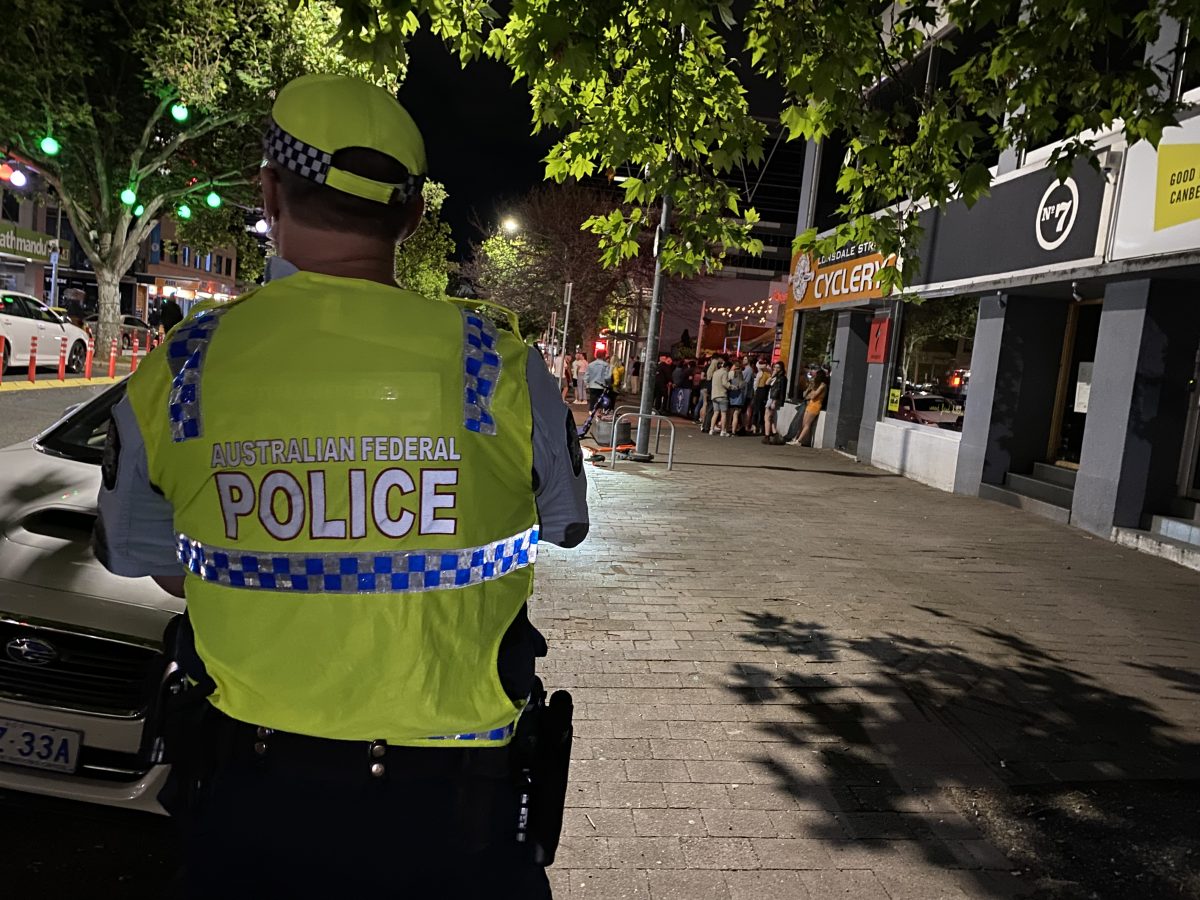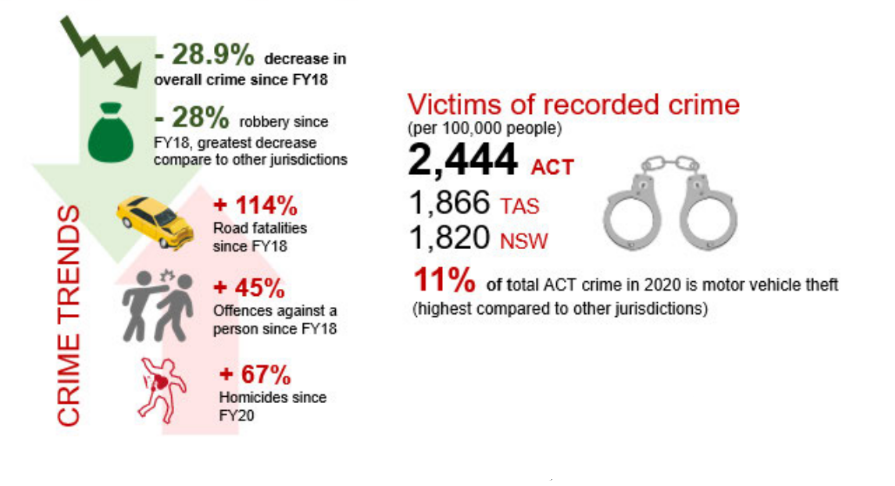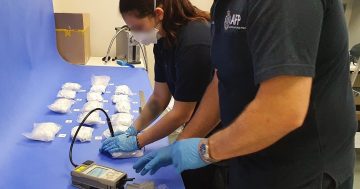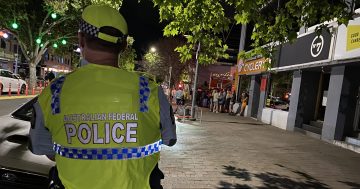
The AFP delivers Canberra’s community policing services as part of an agreement with the ACT Government. Photo: Claire Fenwicke.
New challenges in the Territory are threatening the current ACT Policing model, with a warning sounded that changes are needed to allow our officers to rise to these pressures.
An independent report into the Australian Federal Police’s provision of policing services to the ACT has highlighted how demand for both traditional and new policing services is rising in the Territory, finding ACT Policing (ACTP) needs to undergo a complete “transformation” to deliver a “cohesive, reimagined operating model” to respond to the future challenges facing the force.
The AFP commissioned PwC to undertake a review to understand the demand for community policing services and how the AFP could best position ACTP to respond to changes and challenges.
One area of concern was that the ACT’s past and planned “permissive legislative reform” could increase demand for policing services.
“[For example] decriminalisation of illicit drugs, which has an overall intent of harm minimisation but may also bring in new users of substance to the ACT and have flow-on effects to the broader crime activity that will require policing support,” the report stated.
Canberra’s geographical expansion, increased urban density – driven by Australia’s fastest population growth in the past five years – as well as high community expectations of police were also challenges.
The report also highlighted the ACT’s changing crime profile: while crime is down overall in the past five years (down 29 per cent since the 2018 financial year), this was largely due to a reduction in traffic offences, which the report authors warned was deceiving.
“[This] masks upwards trajectories of other more serious crime and public safety related incident types such as sexual assaults (+5 per cent) … over the past three years (from FY20) [the ACT’s homicide rate] has increased +67 per cent,” the report stated.
“Anecdotally, ACTP members also report increases in family violence and mental health-related issues.
“While these shifts are not dramatically inconsistent with national crime trends, what they illustrate is the increasing threats to community safety, and the complexity and changing nature faced by ACTP in responding to community requirements for their services.”

The PwC review warned the ACT’s crime trends were changing in line with national trends, “putting community safety at risk”. Photo: PwC Act Now report.
The review noted three key areas that needed addressing: ACTP’s shifting its focus from responsive to more preventative or disruptive policing, the need for improving workforce processes such as promotion and recognition to support workforce attraction and retention, and the need to ensure ACTP had “appropriate technology” to support its changing model.
Investment in long-term sustainment of capital assets, such as police stations, was also noted as a must.
“Collectively, the findings of this review reflect the need for ACTP to ‘act now‘,” the report stated.
“Get this right, and the ACTP’s ability to usher in dynamic community policing and improve public safety outcomes will be well-supported.
“Don’t, and ACTP runs the risk of embedding a reactive cycle that threatens public safety outcomes.”
Staffing levels stood out as an issue.
The report stated ACTP was operating “below capacity levels” compared to other jurisdictions, and outlined that it would need to “increase capacity over the long-term” to meet the growing population and demand in the Territory.
“Historically this may have been appropriate due to the ACT’s relatively small, largely contained geographical size … [but] this level of resourcing appears to be insufficient for ACTP to sustain successful delivery of community safety outcomes in the long-term,” it stated.
As of 19 July 2023, ACTP had 726 sworn police officers – 637 of them full-time, 19 part-time, and 70 non-operational or inoperative members.
In the 2023-24 Budget, the ACT Government committed more than $107 million to recruit 126 more ACTP personnel over five years, and to fund resources such as vehicles, body-worn cameras and operational equipment.
A government spokesperson said a “larger and better-equipped force” would enable officers to better respond to crime trends, incidents and the ACT’s evolving needs.
“ACT Policing does an outstanding job tackling crime and ensuring the security of the Canberra community,” they said.
“The ACT Government is committed to working with and supporting police to keep Canberra safe.”
An ACT Policing spokesperson noted this budget commitment.
“Additional resourcing allocated to ACT Policing (in their biggest single funding increase) will allow ACT Policing to better react to changing crime types and to work with other stakeholders to address crime in the ACT in a holistic way,” they said.
“This includes efforts to reduce recidivism, identifying at-risk youth and working with both government and non-government partners to address the causes of crime.”
An internal steering committee has been stood up within ACTP to consider the report’s recommendations.
Many of the recommendations are already being implemented through other programs within the AFP.
However, not everything can be solved with money alone.
“In particular, the Purchase Agreement [between the AFP and ACT Government] needs to be more adaptable to the changing environment trends and the requirements of police in response to these trends,” the report stated.
“This means that funding decisions (and thereby capacity and resourcing) for ACTP are not currently being made with explicit references to changing demand levels.”





















